Augusta returned to her rooms, a little medal pinned to her chest as thanks for her find. No one had noticed her taking the metal thing for herself. She shooed out her page and sat down on the bed to examine the thing further.
It seemed to be made of gold, engraved on both sides with flowery strands. It was heavy and cold in her palm. The vertigo gradually subsided, but the chills remained like an icy stream going from her hand to her neck. The chain attached to the locket by a little knob on the side. Another, almost invisible button sat across from it. She pressed it, and the locket sprung open to reveal a white disc painted with small lines. Three thin rods were attached to the centre. One of them moved around the disc in twitching movements, making a ticking noise like a mouse’s heart.
It was a machine. Augusta had seen things like it a few times, among the belongings of houses or humans who had been claimed by the gardens. They had always been broken, though. Mechanical things usually fell apart as soon as they came into the gardens’ domain. It was a mystery how this thing could still be in one piece and working.
The chills had become an almost pleasant sensation. Augusta watched the rod chasing around the disc until she fell asleep.
She woke up in the same position as she’d fallen asleep in, on her side with the little machine in her hand. It was still now. Augusta frowned and called on her page. There were a handful of pages in the family, most of them nameless changelings raised in servitude. For various reasons, only two of them could carry a conversation, should one be so inclined. Augusta’s page wasn’t one of them.
“Fetch Azalea’s page,” she told him when he arrived.
Augusta watched the machine until there was a scratch at her door and Azalea’s page stepped inside. He was a half-grown boy, with dark hair in oiled locks and eyes rimmed with kohl; a beautiful specimen that Azalea had insisted on taking into service despite his being too old to train properly. The boy stood in the middle of the room, having the audacity to stare directly at Augusta. She slapped him with the back of her hand. He shrunk back, turning his gaze to the floor. He walked over to the bed and started to remove his clothes.
“No, not now,” Augusta said.
The boy froze halfway out of his surtout. Augusta tossed him the little locket.
“You will tell me what this is,” she said.
“You don’t know?” he said.
Augusta slapped him again.
“You will tell me what this is,” she repeated.
He sniffled.
“It’s a watch.”
“And what does a watch do?”
“It measures time.”
He pointed at the different parts of the watch, explaining their functions. The rods were called hands, and chased around the clock face in step with time. The clock face indicated where in time one was located. It made Augusta shudder violently. Time was an abhorrent thing, a human thing. It didn’t belong here. It was that power which made flesh rot and dreams wither. The gardens were supposed to lie beyond the grasp of time, in constant twilight; the sun just under the horizon, the moon shining full over the trees. Augusta told the boy as much:
“Time doesn’t pass here. Not like that, not for us.”
The boy twisted the little bud on the side of the locket, and the longest hand started to move again.
“But look,” he said. ”The hands are moving now. Time is passing now.”
“But does it know how time flows? Does it measure time, or does it just move forward and call that time?”
The changeling stared at her.
“Time is time,” he said.
Augusta cut his tongue out before she let him go. Azalea would be furious, but it was necessary.
She lay down on her bed again, but couldn’t seem to fall asleep. How could the hands on the watch keep moving here? The sun didn’t go up or down. Didn’t that mean time stood still here? It was common knowledge. Whenever one woke up, it was the same day as the day before.
She sat at her writing desk, jotting down a few things on paper. It made her head calm down a little. Then she opened a flask of poppy wine and drank herself back to sleep.
When Augusta woke up, her page was scratching at the door with a set of clothes in his arms and an invitation card between his teeth. It was an invitation to croquet. With a vague feeling that there was something she ought to remember, Augusta let the page dress and powder her.
She returned with a bump in the back of her head and a terrific headache. It had been a fantastic game. There had been gorging, Walpurgis had demonstrated a new dance, and the twins had — sensationally — struck each other senseless. Augusta had been behind everyone else in the game, eventually having her ball sent into the woods again, needing to go fetch it just like that time she’d found something under the dog-rose bush… under the dog-rose bush. She looked at her writing desk, where a little silk bundle sat on a piece of paper. She moved the bundle out of the way and read:
A minute is sixty seconds.
An hour is sixty minutes.
A day is twelve hours.
A day and a night is twenty-four hours.
Augusta opened the bundle and looked at the little locket. Some images appeared in her mind: Her first croquet game. The corpse in the grey suit. The watch. The page who told her about time. A thirst to know how it worked. What is time? she wrote under the first note. Is it here?
Augusta took the watch and left her room. She wandered down to the orangery, which was lit from inside. Tendrils of steam rose from the roof. Inside, three enormous mounds lay on couches. The Aunts were as always immersed in their holy task to fatten. Three girls hovered around them, tiny in comparison. The girls were servants and successors, keeping the Aunts fed until they eventually perished, and then taking their places to begin the process anew. Augusta opened the watch, peeking at the clock face. The longest hand moved slowly, almost imperceptibly.
She walked from the orangery to the outskirts of the apple orchard, and from there to Porla’s fen; then to the dog-rose shrubs in the woods outside Mnemosyne’s court. Everywhere, the hands on the clock face moved; sometimes forward, sometimes backward. Sometimes they lifted from the clock face, hitting the glass protecting it, as if trying to escape.
Augusta woke up in Azalea’s arms, under a canopy in Our Lady’s arbour. The orgy they were visiting was still going on; there were low cries and the sound of breaking glass. Augusta couldn’t remember what they had been doing, but she felt sore and bloated, and her sister was snoring very loudly. She was still wearing her shirt. Something rustled in her left breast pocket; she dug it out. It was a note. A little map, seemingly drawn in her own hand. Below the map was written a single sentence: The places float just like time. She had been wandering around, drawing maps and measuring distances. At some point. Mnemosyne’s garden had first been on the right-hand side from Augusta’s rooms. The next time she had found herself walking straight ahead to get there. The places floated. Augusta turned the note over. On the other side were the words: Why is there time here? Why does it flow differently in different places? And if the places float, what is the nature of the woods?
She returned to her rooms in a state of hangover. Papers were strewn everywhere it seemed: on and under the bed, on the dresser, in droves on the writing desk. Some of the notes were covered in dust. She couldn’t remember writing some of them. But every word was in her own handwriting.
There was a stranger in Mnemosyne’s court, towering over the other guests. She was dressed in simple robes, hooded and veiled, golden yellow eyes showing through a thin slit. They shone down on Walpurgis, who made a feeble attempt to offer her a croquet club. Everyone else gave the stranger a wide berth.
Читать дальше
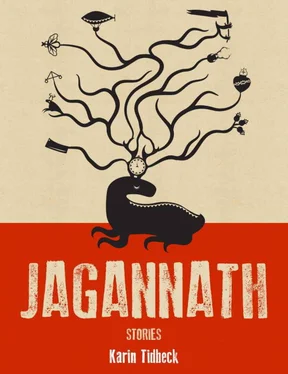
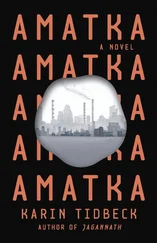
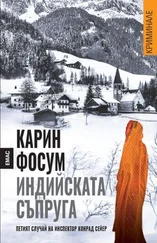
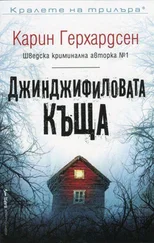
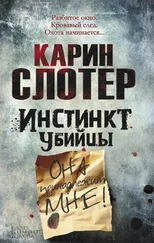
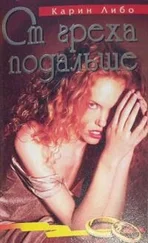

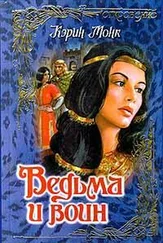




![Карин Тидбек - Аматка [ЛП]](/books/438406/karin-tidbek-amatka-lp-thumb.webp)